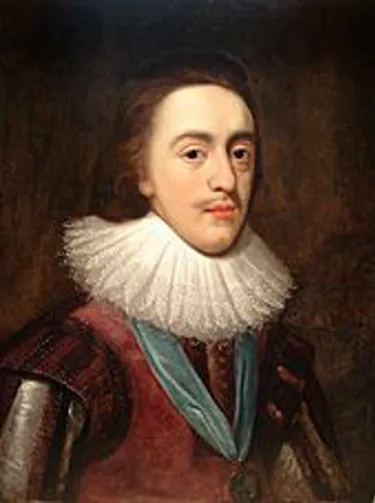Who was King Charles the first?
- Monday July 8th 2024

King Charles I of England, is a significant figure of British history, controversy still remains centuries after his reign due to conflicts with Parliament with ultimately led to civil war and his own execution. We're taking a look back into the life of a complex man whose beliefs in divine right clashed with the emerging powers of constitutional government, shaping the political landscape of 17th-century England and the future.
Born on November 19, 1600, Charles ascended to the throne of England, Scotland, and Ireland in 1625, succeeding his father, King James I. His reign, however, was marked by several events that ultimately led to a pivotal moment in British history: the English Civil War and his subsequent execution in 1649.
King Charles I was a monarch deeply committed to the principles of divine right of kings—a belief that monarchs derive their authority directly from God. This belief clashed with the growing assertiveness of Parliament, who wanted greater influence in governance and authority. The conflict between the crown and parliament escalated throughout the 1630s, and tensions grew due to King Charles I's unpopular policies and attempts to rule without parliamentary consent.
Why was King Charles 1 executed?
One of the pivotal issues of his reign was religion.
King Charles I married a Catholic woman called Henrietta Maria during the first year of his reign. Unfortunately, this did not sit well with may English Protestants, however Charles believed that the heads of the church should not be under the same rules as the public.
When met with opposition, he dissolved parliament. During the first half of his reign, he dissolved parliament four times, once which lasted for 11 years.
Alongside this, Charles's attempted to impose a single form of worship across Britain, however resistance was high, particularly in Scotland. This led to unrest and resentment among society and this religious and political tension eventually erupted into civil war in 1642 with Parliamentarians, led by Oliver Cromwell, opposing the Royalists who supported the king.
Trial and conviction
The English Civil War lasted until 1651, and ultimately ended in King Charles I's defeat resulting in him being arrested.
The High Court decided to try him for treason, at the trail any supporters who were against it were also arrested. Unfortunately, the King did not cooperate with the court and therefore did not enter a plea.
Seven days after he was arrested, the court returned with a guilty verdict and he was sentenced to execution.
The Execution
On January 30th, 1649 King Charles I was executed at the Palace of Whitehall, to this day he is the only English monarch to be tried and executed by his society.
Despite his controversial legacy, King Charles I is also known for his artistic interests. He supported renowned artists like Anthony van Dyck and his collection of art and cultural artefacts are now in what's known as the Royal Collection.
King Charles I's reign and its dramatic end, left a distinct impact on British history, highlighting the limitations of the divine rights of Kings, and paving the way for constitutional reforms that would shape the future of the British monarchy.
His legacy remains a subject of historical debate, reflecting the complex relationship that exists between power, authority, and the will of a modern society who want to ensure governance is evolving.
